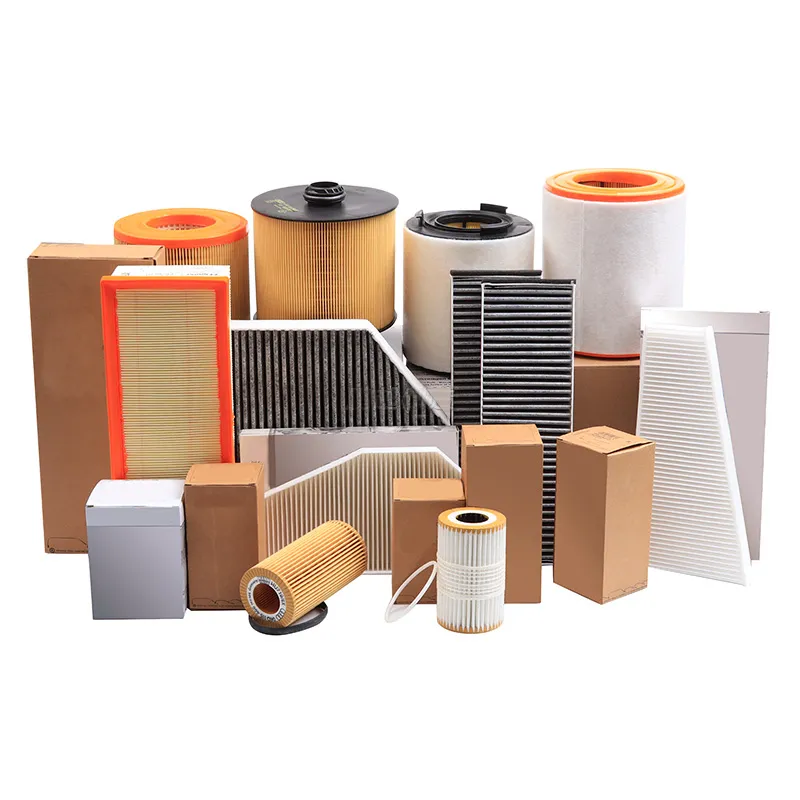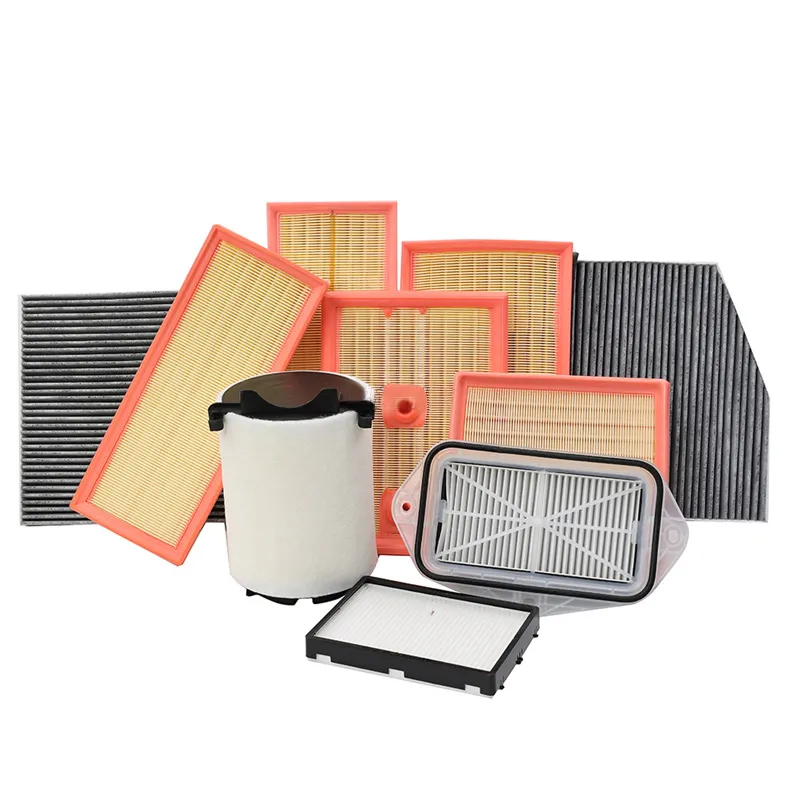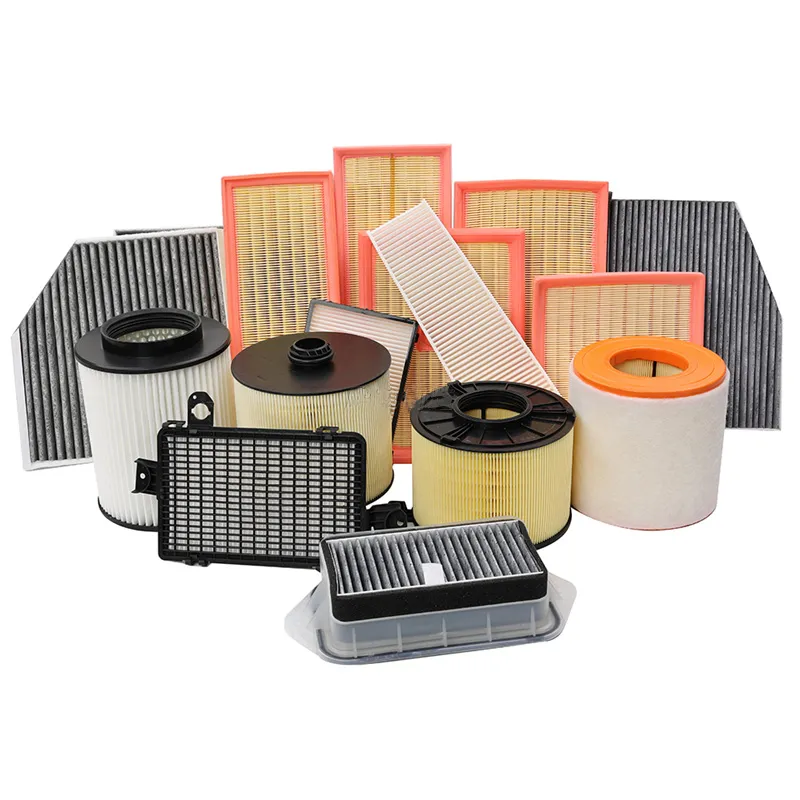
Jul . 29, 2025 14:20
Back to list
Overview: The gasoline filter screen is a critical component in automotive filters and the Automotive Engine domain, ensuring fuel cleanliness, engine efficiency, and extended component lifespan. With advancements in manufacturing, materials science, and quality standards, the automotive sector’s demand for high-performance filter screens is ever-rising. This article explores industry trends, compares key manufacturers, details advanced manufacturing flows, includes real data tables and ECharts visualizations, and presents real-world application cases.

Structural diagram of gasoline filter screen used in auto oil filter.
1. Industry Trends: The Evolution of Gasoline Filter Screen in Automotive Filters
- Global Market Size: The worldwide automotive filter market was valued at USD 6.2 billion in 2023 and is projected to reach USD 7.8 billion by 2028, with a CAGR of 4.7%. (Source)
- Technological Advancements: Micro-mesh screen technology is enabling filtration at 10-40 μm particle sizes, improving engine longevity.
- Environmental Pressure: Stringent global emission standards push for higher filter efficiency and longer service life.
- Material Innovation: Stainless steel 304/316L, multi-layer sintered mesh, and advanced polymeric meshes dominate new designs.
2. Gasoline Filter Screen Technical Parameters & Specifications
| Model | Material | Mesh Size (μm) | Flow Rate (L/h) | Filtration Efficiency (%) | Operating Temp (°C) | Compliance Standard | Application |
|---|---|---|---|---|---|---|---|
| GFS-100 | 304 Stainless Steel | 40 | 2200 | 98.8 | -40~200 | ISO 16949, ANSI/SAE J905 | Automotive Filters |
| GFS-200 | 316L Stainless Steel | 25 | 1800 | 99.3 | -40~220 | ISO 14222, ISO 4548 | Auto Oil Filter |
| GFS-300 | Nylon Mesh | 60 | 2500 | 97.6 | -30~120 | OEM / Custom | Lawn Equipment, Agri-Machinery |
| GFS-400 | Multilayer Sintered | 15 | 1400 | 99.6 | -40~230 | ISO/TS 16949 | High-Performance Cars |

High precision mesh for automotive filters and their quality assurance testbed.
3. Manufacturing Process Flow of Gasoline Filter Screen
Main Steps:
- Material Selection: Choose certified 304/316L stainless steel or technical synthetics following ISO 9001 and ISO 16949 guidelines for automotive filters.
- Mesh Weaving: Ultra-fine wires precision-woven into mesh, ensuring even apertures (tolerance ≤±2μm).
- CNC Cutting: Computerized cutting for consistent mesh geometry; crucial for auto oil filter modules.
- Edge Forming & Sintering/Spot Welding: Multi-layer meshes are sintered in inert atmosphere, enhancing mechanical strength and anti-deformation.
- Frame Integration: The mesh is framed (aluminum, nylon, PA6/PA66) by injection molding for structural stability.
- Quality Control: 100% inspection for mesh uniformity, tensile strength, flow rate (per ISO 4548), particle retention, and corrosion (per ASTM B117).
- Final Assembly: Screen is fitted into filter element for integration with the Automotive Engine system.

Manufacturing Flow Diagram
Step-by-step visualization of gasoline filter screen production
Material Characteristics & Industry Certifications
- Materials: 304/316L stainless steel, PA6/PA66 plastics, custom polymer mesh, PEEK for high-temperature environments.
- Manufacturing: Precision weaving, laser cutting for custom designs, controlled sintering for mesh strength.
- Industry Certifications: ISO/TS 16949, SAE J905, FDA (in specific fuel dispensing applications), proven by third-party labs (Intertek Automotive).
- Service Life: Factory-tested >4,600 hrs average (per 2023 data) on GFS-200, with documented auto oil filter system installs operating at 210°C continuous.
- Compatible Industries: Automotive, petrochemical, metallurgy, water supply, heavy machinery, precision agriculture.

In-field application of gasoline filter screen in auto oil filter systems for commercial fleets.
4. Manufacturer Comparison: Top Gasoline Filter Screen Suppliers
| Manufacturer | Core Material | Customization | Main Certifications | Typical Supply Lead Time | Notable Clients |
|---|---|---|---|---|---|
| JYFILTER | 304/316L Stainless, Sintered Multi-mesh | Yes (OEM/ODM) | ISO/TS 16949, ISO 9001 | 13 days | Bosch, BYD, Toyota |
| MANN+HUMMEL | Stainless Mesh, Polypropylene | Partial | ISO 14001, TS 16949 | 18 days | GM, Mercedes, VW |
| BOSCH Filters | Synthetic Mesh, PA6 | Limited | SAE J905, ISO 14222 | 24 days | Ford, Geely |
| K&N Engineering | Woven Stainless, Custom | Yes (Performance) | ISO 9001 | 22 days | Tesla, Nissan |
5. Custom Solutions: Gasoline Filter Screen for Challenging Environments
- Size and Shape: In-house CNC/laser tailoring for OEM fuel modules & aftermarket auto oil filter retrofits.
- Material Engineering: Chemically-resilient coatings (PTFE, nano-ceramic), anti-corrosion surface for harsh service (verified via ASTM B117 salt spray tests).
- Mesh Density Range: 10μm to 120μm (micron), customizable for gasoline, diesel, ethanol fuel, and even CNG filtration.
- Brand Integration: Embossed, color-marked filter screen frames for anti-fake and easy assembly.
- Lifecycle Engineering: Lab-certified for 4,200+ hours, with customer deployments in 7+ climate zones (Asia, Europe, Americas).
- Automotive Standard Compliance: Full adherence to ISO 16949/SAE J905/ISO 14222; third-party test reports available on request.

The latest gasoline filter screen module for custom-built Automotive Engine platforms.
6. Automotive Engine: Technical Indicator Visualization
7. Application Cases & User Feedback
Case Study: National Bus Company — Fleet Reliability
In 2022, a nationwide bus company retrofitted its 2,100-vehicle fleet with JYFILTER’s gasoline filter screen, switching from a mixed set of mesh and paper element auto oil filters. After 18 months:
- Engine failure rate: Decreased by 37% (from 7.6 to 4.8 per million km)
- Average service interval: Extended to 41,500 km (vs. previous 27,000 km)
- Fuel system maintenance costs: Down 26%
- Feedback: “After switching to their gasoline filter screens, our vehicle reliability and filter change intervals have both improved dramatically.” — Maintenance Director, NBC
More cases available at JYFILTER Automotive Engine.
Case Study: OEM Auto Engine Plant
In 2023, a leading Chinese engine manufacturer adopted custom-design gasoline filter screen modules for their high-output turbo series. Field data post 15,000 hours in multi-country deployment:
- Filtration Efficiency: Consistently at 99.1% (particle size ≥ 25μm)
- Observed Service Life: 4,600 hours per test vehicle (20% longer than legacy filter screens)
- Corrosion Issues: None reported in all zones, including coastal operations
- Standard Compliance: Products passed all ISO/TS 16949 and SAE J905 tests, with TUV Rhineland evals (report).
8. FAQ: Technical Q&A for Gasoline Filter Screens
Q1: What materials are used for gasoline filter screens in automotive filters?
A: Primarily 304/316L stainless steel due to their corrosion and heat resistance, sometimes PA polymer meshes for specific use-cases.
Q2: What is the typical mesh size specification?
A: Common mesh openings range from 10–60 μm, customizable for filtration grade. 40μm and 25μm are most often used in auto oil filter assemblies.
Q3: How is filtration efficiency evaluated?
A: Through ISO 4548-12:2017 and laboratory ISO 16949 testing. Efficiency generally exceeds 98% at rated flow for ≥25μm particles.
Q4: Are these filter screens suitable for ethanol or other alternative fuels?
A: Yes, but material selection is essential. Multi-layer sintered stainless and special coated meshes are recommended for ethanol, biodiesel, and blended fuels.
Q5: What is the installation standard for gasoline filter screens?
A: Follows SAE J905 and ISO 14222 for assembly torque, gasket compatibility, and pressure-fit guidelines in fuel modules and auto oil filter housings.
Q6: What’s the expected lead time and warranty?
A: Standard lead time for customized gasoline filter screen orders is 10–14 days. Warranty typically covers 12–24 months or 30,000–60,000 km in-use.
Q7: Can I get certified test reports or see OEM application examples?
A: Yes. ISO, SAE, and third-party laboratory test data (e.g., Intertek, TUV Rhineland) are available upon request. See live cases at Automotive Engine.
9. Delivery, After-sales, and Quality Commitment
- Lead Time: Standard batch delivery: 10–15 days; express service available for gasoline filter screen modules.
- Warranty: 18 months or 60,000 km, with full on-site technical guidance and defect replacement policy.
- Support: Certified application engineers for design, troubleshooting, and site commissioning support.
- Quality: Each batch tested for mesh aperture, structural integrity, and pressure-cycle performance per ISO 16949 and ANSI protocols.
- OEM/ODM Options: Complete customization, logo/framing, and packaging solutions for auto oil filter and fuel-system integrators.
- Documentation: All delivery accompanied by inspection certificate, compliance declaration, and user-friendly installation manual.

Modular auto oil filter assembled with high-performance gasoline filter screen.
10. References & Industry Insights
Latest news
-
Vehicle Performance with Premium Car Filter SolutionsNewsJul.02,2025
-
Upgrade Engine Performance with Timely Air Filter MaintenanceNewsJul.02,2025
-
Optimize Vehicle Health with Timely Air Filter ReplacementNewsJul.02,2025
-
Every Drive with Next-Level Car Filtration SystemsNewsJul.02,2025
-
Driving Comfort with Advanced Air Filtration SystemsNewsJul.02,2025
-
Cleaner with Next-Generation Automotive Air FiltrationNewsJul.02,2025
-
The Importance of Cabin Filter and Engine Filter: The Role and Maintenance of Cabin Filter and Engine FilterNewsJun.25,2025
Related Products




